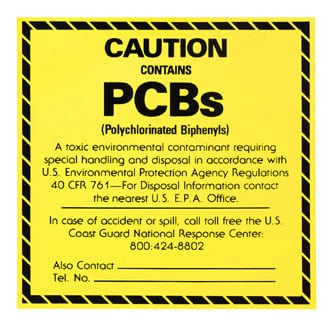Polychlorinated biphenyls (PCBs) belong to a broad family of man-made organic chemicals known as chlorinated hydrocarbons. PCBs were domestically manufactured from 1929 until their manufacture was banned in the United States in 1979. PCBs were used in hundreds of industrial and commercial applications including electrical, heat transfer, and hydraulic equipment; as plasticizers in paints, plastics, and rubber products; in pigments, dyes, and carbonless copy paper; and many other industrial applications. The chemical has been shown to cause cancer, as well as to cause a number of serious effects on the immune system, reproductive system, nervous system, and endocrine system in animals; studies in humans provide supportive evidence for potential carcinogenic and non-carcinogenic effects of PCBs. Maryse Bouchard, from the University of Montreal (Canada), and colleagues have found that higher levels of the toxin associate with lower cognitive performance in seniors. There is a significant association between PCB levels and cognitive abilities among individuals aged 70 to 84 years; the correlation was also detected to a lesser extent among people aged 60-69 years. This analysis also showed that the association differed by sex. Women in the older age group had the largest diminution in cognition in relation to exposure. The study authors warn that: “The findings support the hypothesis that PCB exposure has adverse cognitive effects, though perhaps only with advanced age.”
Banned Chemical Damages Cognitive Performance
Bouchard MF, Oulhote Y, Sagiv SK, Saint-Amour D, Weuve J. “Polychlorinated Biphenyl Exposures and Cognition in Older U.S. Adults: NHANES (1999-2002).” Environ Health Perspect. 2013 Nov 25.
RELATED ARTICLES




